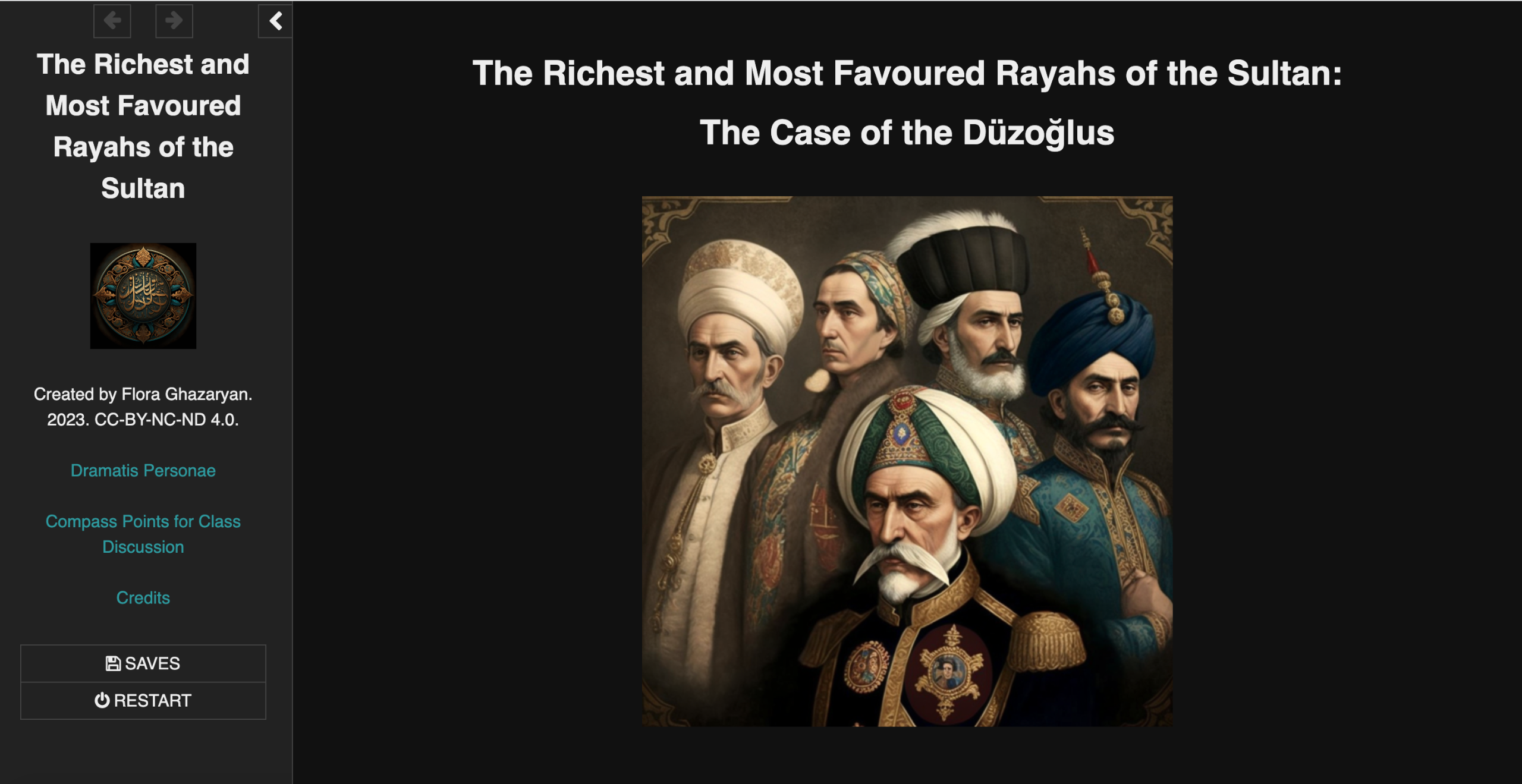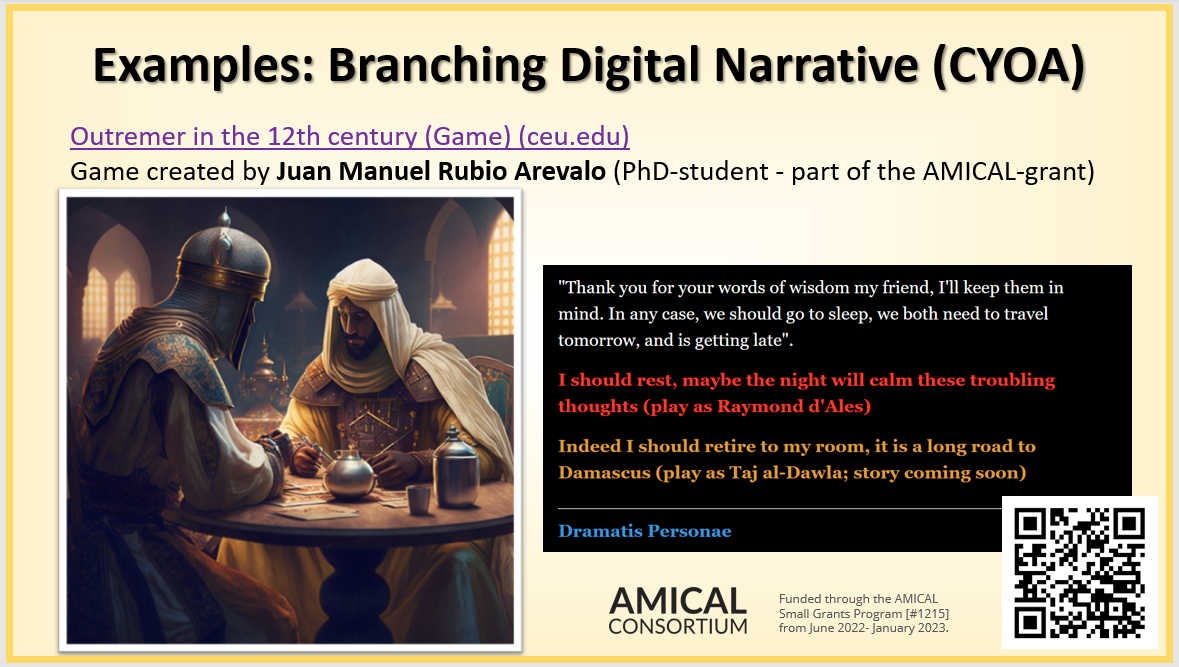Digital project showcases
Interactive Fiction in the Humanities and Liberal Arts Classroom

Cover of “The Richest and Most Favoured Rayahs of the Sultan: The Case of the Düzoğlus”
Interactive Fiction (IF) is a genre of narrative games which leads students through a branching story or scenario. The choices students make in the game directly influence their future choices and the story outcomes. Funded by AMICAL’S Small Grant Program, a team consisting of a technologist, faculty, graduate students, and librarians explored ways to integrate IF into interdisciplinary bachelor’s programs at the Central European University. To date, the project integrated two interactive gamebooks as playable exemplars into the Yehuda Elkana Center for Teaching, Learning, and Higher Education Research’s Game-based Learning course in the Certificate in Teaching in Higher Education, and made available a short guide for educators for developing their own IF.
Resources
Digital Interactive Fiction – Play the two games and download a short Interactive Fiction guide on the project website.
Team members
- Kaitlin Lucas, Academic Technologist, Central European University, Project Lead
- Dr. Irene Lubbe, Senior Lecturer, Central European University, Project Collaborator
- Juan Manuel Rubio Arévalo, PhD Candidate in Medieval Studies, Central European University, Project Assistant
- Flora Ghazaryan, PhD Candidate in Comparative History, Central European University, Project Assistant
In addition to the support of librarians, IT staff and the web team at the Central European University.
Course learning outcomes targeted in the project
- Debate the uses, value, and appropriateness of games in teaching, learning, and assessment
- Create a low-tech game to used as a teaching, learning, or assessment resource
Project digital pedagogical goals
- Explore purposeful uses for game-based learning in the university humanities classroom
- Create digital games for use within Central European University’s interdisciplinary bachelor programs
- Develop guidance and samples for faculty who wish to embed interactive fiction within humanities and liberal arts courses
Source materials
The game narratives were adapted from primary and secondary sources:
- The narrative for the gamebook “The Four Cities: A story of Outremer in the 12th Century”, which details events leading up to the Second Crusade, was primarily sourced from the chronicles written by William of Tyre (1130-1186) and Ibn al-Qalanisi (1071-1160).
- The gamebook “The Richest and Most Favoured Rayahs of the Sultan: The Case of the Düzoğlus,” which follows a prominent Armenian family in 19th-century Istanbul, was reconstructed using primary sources from Ottoman, Armenian, and European archives.
Technology used
- Twine: authoring and game-building (versions: Harlowe 3.3.5 and SugarCube 2.36.1)
- Midjourney: generating AI images for the games
- Zotero: managing citations
Scholarship that came out of the project
- The results of the project were presented at the 2023 AMICAL Conference and the 2023 European Distance and E-learning Network (EDEN) Conference.
- This IF-project will be featured in the workbook distributed to international participants registered for the GBL-workshop facilitated by Irene Lubbe & Yurgos Politis at the Elkana Center Teaching and Learning Symposium and HERDSA-conference in Summer 2023.
- The team aims to publish a scoping review of digital game-based learning in the humanities (forthcoming).
Partnering with other AMICAL Institutions
The project team would be happy to collaborate with other AMICAL institutions who are interested in developing digital games or incorporating game-based learning within the humanities, social sciences, and other disciplines.

Slide used to showcase this project.